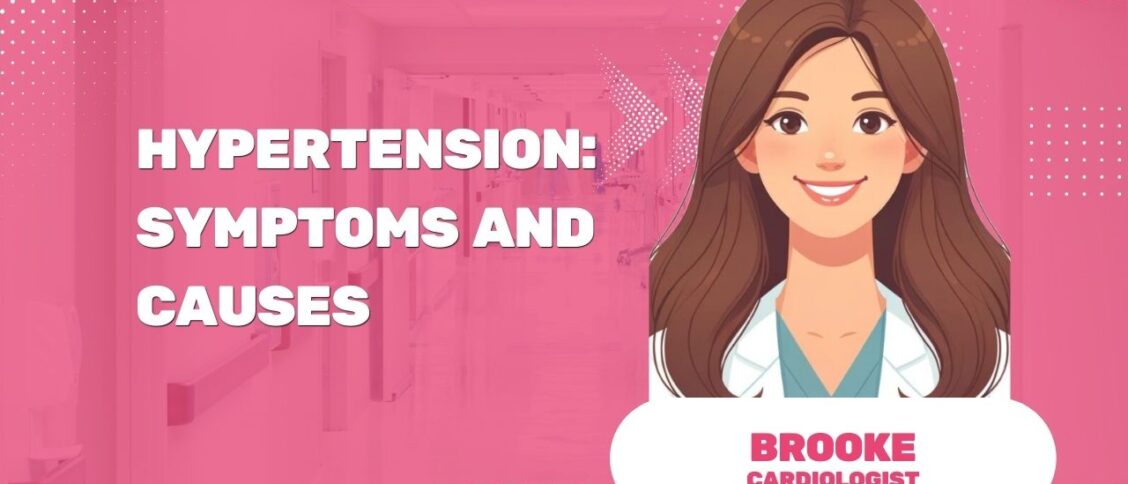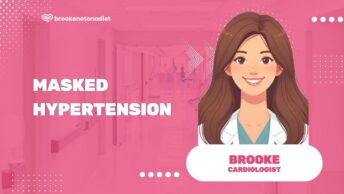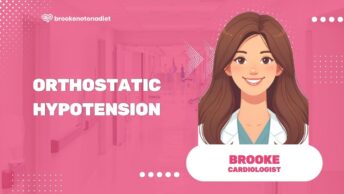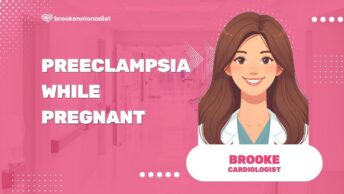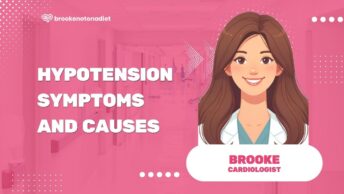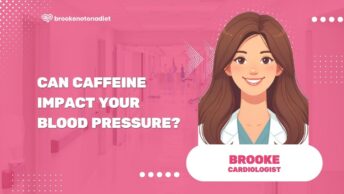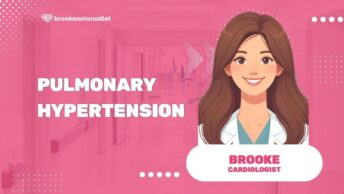Hypertension, also known as high blood pressure, is a silent killer that’s often overlooked. It’s a condition that can sneak up on you, with symptoms that are easy to miss. I’ve seen it happen too often, and it’s my mission to raise awareness about this serious health issue.
In this article, I’ll be shedding light on the symptoms of hypertension, some of which you might not even associate with high blood pressure. I’ll break down these symptoms, explaining why they occur and how they can affect your body. It’s time to get informed and take control of your health. Stay tuned as we delve into the world of hypertension symptoms.
What are the types of high blood pressure (hypertension)?
There’s a common misconception that hypertension’s just a singular entity. Well, that’s not the case. There are actually two primary types of this health condition.
Essential (Primary) Hypertension
First, we’ve got Essential Hypertension. This is the most common type, impacting a staggering 90% to 95% of hypertension cases. While it’s exact causes aren’t known with certainty, several factors have been associated with its development. These include:
- Age and gender: Risk increases with age and is often higher in men.
- Family history: Hypertension tends to run in families.
- Lifestyle: Poor diet, lack of exercise and high stress can all contribute.
Use a blood pressure monitor regularly. Consistent self-monitoring can assist in early detection or even prevention.
Secondary Hypertension
Now onto Secondary Hypertension. This type’s usually a result of an underlying health condition like kidney disease or hormonal disorders. It can also stem from intake of specific medications or substances, such as oral contraceptives or alcohol. Secondary Hypertension affects only a small percentage of people, roughly 5% to 10% of the total cases.
What are the symptoms and signs of high blood pressure (hypertension)?
Most people imagine that high blood pressure, due to its name, will have very obvious symptoms. Interestingly, many don’t realize that hypertension often presents no recognizable symptoms. It’s sometimes referred to as a “silent killer” for this reason. However, it’s crucial to stay vigilant and take proactive steps to know and understand your blood pressure levels.
Bear in mind that if symptoms do show up, the situation could be severe. Those experiencing symptoms might already have malignant or very high blood pressure. Some possible signs or symptoms include:
- Severe headaches
- Fatigue or confusion
- Vision problems
- Chest pain
- Difficulty breathing
- Irregular heartbeat
- Blood in the urine, or
- A feeling of pulsing in your neck, ears, or chest.
Let’s emphasize: experiencing no symptoms does not mean your blood pressure is in the safe range. Regular assessment of your blood pressure is important, hence the need for a blood pressure monitor for personal use or regular checks at the clinic.
What are the risk factors and causes of high blood pressure (hypertension)?
As we delve deeper into our exploration of hypertension, let’s discuss the risk factors associated with high blood pressure. Understanding these risk factors not only aids in prevention but also plays a pivotal role in successfully managing hypertension.
What is the Relationship Between Salt Intake and Hypertension?
High salt intake is perceived globally as among the major cause behind spike in blood pressure numbers. Research has consistently shown a strong link between high dietary salt intake and raised levels of blood pressure.
When there’s too much salt in your diet, your body holds more water. This extra stored water raises your blood pressure and puts a strain on your heart, arteries, kidneys, and brain. Over time, this strain can lead to severe health issues like heart attack, stroke, dementia, and kidney disease.
To grasp the impact of salt on our blood pressure, let’s highlight some key statistics in a markdown format.
| High Salt Foods | Sodium Content (mg) |
|---|---|
| 1 can of soup | 1,200 |
| 1 fast food cheeseburger | 1,000 |
| 1 slice of pizza | 760 |
| 1 tablespoon of soy sauce | 1,000 |
It’s vital to regularly monitor your blood pressure, irrespective of your salt intake. Regular checking of blood pressure provides a clear picture of your health trends and is a key aspect of preventative maintenance. Hence, it’s rigorous use of your blood pressure monitor cannot be understated! Remember, hypertension is often referred to as the ‘silent killer’ due to its lack of noticeable symptoms. Make it an indispensable part of your routine and ensure that the numbers on your blood pressure chart fall within the normal blood pressure ranges.
In the battle against hypertension, both lowering blood pressure and maintaining it at a healthy range are of grave importance. One effective way is by monitoring and limiting the salt in your diet, yes, it’s that simple! Regular exercise, a balanced diet, refraining from smoking, and reducing overall stress levels can also contribute significantly.
Don’t forget, monitoring and understanding your blood pressure is a lifelong commitment. Always keep a vigilant eye on your blood pressure ranges and take necessary steps to ensure they fall within the normal spectrum. An easy first step would be to limit your salt intake. So, shall we start?
What are the diagnosis and tests for high blood pressure (hypertension)?
To diagnose hypertension, medical professionals usually conduct an array of tests. Checking blood pressure routinely is the first step and often, the core of these assessments. It’s done with the use of a device known as a blood pressure monitor. The result is a set of two numbers reflecting your systolic and diastolic blood pressure levels. Understanding the blood pressure chart and blood pressure ranges is crucial for interpreting these numbers.
A healthy range on the blood pressure chart is a reading below 120/80 mm Hg. However, blood pressure can fluctuate throughout the day due to factors like stress, physical activity, and caffeine or nicotine consumption. Hence, a diagnosis of hypertension isn’t typically given until high readings persist over time.
Medical professionals might also suggest the use of a 24-hour blood pressure monitor. This device can offer a more accurate reflection of your regular blood pressure as it tracks the levels throughout the day and night.
Further, a few important tests are:
- Blood tests: These are conducted to gauge kidney function, cholesterol levels, and the presence of other diseases that could be causing or exacerbating your high blood pressure.
- Urinalysis: This test checks for levels of certain substances in your urine, like protein or glucose, which can indicate kidney problems or diabetes.
- Electrocardiogram (ECG or EKG): This test measures the electrical activity and rhythms of your heart. It aids in identifying if high blood pressure has caused any damage to your heart.
- Ultrasound of the heart (echocardiogram): This test creates a detailed image of your heart’s structure and function, helping in the assessment of any damage or strain due to high blood pressure.
If there’s confirmation of hypertension, the next step is to identify the causes. Hypertension could either be primary (without a known direct cause) or secondary (caused by another health condition). In case of secondary hypertension, the associated condition needs to be treated to manage the high blood pressure.
Being proactive about your heart health is crucial. Regular monitoring of blood pressure and subsequent actions towards lowering blood pressure, if required, can be life-altering. Physical activity, balanced diet, moderation of salt intake, stress management, and refraining from smoking are key strategies that can help.
What are the treatments for high blood pressure (hypertension)?
The scientific community strives to improve our understanding and treatment of high blood pressure. Accordingly, various treatments have emerged, ranging from medication to lifestyle changes.
What medications are used to treat high blood pressure (hypertension)?
Several classes of medications effectively manage high blood pressure, each with its unique mode of action:
- Diuretics: Help kidneys remove more sodium and water from the body, lowering blood volume.
- ACE Inhibitors: Prevent the formation of a hormone called angiotensin, reducing blood vessel constriction.
- ARBs: Block the action of angiotensin, helping blood vessels relax and lower pressure.
- Calcium Channel Blockers: Prevent calcium from entering heart and blood vessel muscle cells, resulting in relaxed vessels.
- Beta Blockers: Cause the heart to beat slower and with less force, reducing blood pressure.
| Medication | Action |
|---|---|
| Diuretics | Reduce blood volume by removing sodium and water |
| ACE Inhibitors | Prevent angiotensin formation to reduce blood vessel constriction |
| ARBs | Block angiotensin, help blood vessels relax |
| Calcium Channel Blockers | Prevent calcium entry in cells, relax vessels |
| Beta Blockers | Slow heart beat and reduce force, lowering pressure |
How to lower high blood pressure naturally?
Natural ways to lower blood pressure often revolve around lifestyle modifications. With your doctor’s guidance, these actions can significantly improve your heart health:
- Manage your weight
- Adopt a healthy diet
- Exercise regularly
- Limit alcohol
- Cut back on caffeine
- Reduce your stress
- Quit smoking
What role does weight management play in hypertension control?
Managing your weight is crucial in controlling hypertension. Evidence shows that a weight loss of even 5-10% can drastically reduce high blood pressure and bring it into the safe range. Regular physical activity also aids weight loss which in turn can help lower blood pressure.
What is the best diet for high blood pressure (hypertension)?
Diet plays a key role in managing hypertension. The Dietary Approaches to Stop Hypertension (DASH) diet is often recommended. It’s rich in fruits, vegetables, whole grains and low-fat dairy foods, poultry, fish, legumes, nuts, and non-tropical vegetable oils. This diet minimizes sweets, sugary beverages, and red meats. In addition to adopting the DASH diet, reducing your sodium intake can also significantly help manage your blood pressure.
What alternative therapies effectively manage high blood pressure?
Alternative therapies can complement traditional treatment plans. Approaches like yoga, meditation, controlled breathing, and biofeedback have demonstrated success in lowering blood pressure. These practices help reduce stress hormones that raise renin, a kidney enzyme that raises blood pressure.
Nonetheless, before adopting any treatment option or lifestyle modification, consult your doctor first to ensure it’s safe and suitable for you. Checking blood pressure routinely, perhaps using a dependable blood pressure monitor, is vital for those managing hypertension.
What problems does high blood pressure (hypertension) cause?
The dangers of high blood pressure, also known as hypertension, are significant. They stretch far beyond simply needing to take medication. Over time, if left untreated, you’re looking at potential heart problems, memory issues, and added complications for older adults. Let’s dive deeper into these matters.
How Does Hypertension Affect the Heart Over Time?
Long standing hypertension puts exertion on our body’s “powerhouse.” Your heart works overtime daily to meet the body’s requirements. Prolonged high blood pressure leads to some serious heart-related complications, including:
- Heart Attack – Uncontrolled hypertension can cause arteries to block or burst.
- Stroke – Higher pressure can lead to a blood clot blocking the flow to the brain, resulting in a stroke.
- Heart Failure – Your heart has to work harder due to increased pressure, leading to thickening of its walls (hypertrophy). Over time, it gets harder and harder to pump blood.
A handy blood pressure chart would help in understanding the ranges. Normal blood pressure range is typically around 120/80 mmHg while hypertension generally kicks off when you’re at 130/80 mmHg or above.
Does High Blood Pressure Influence Cognitive Health?
Indeed, hypertension isn’t just a heart concern. Extended high blood pressure can harm your brain as well, manifesting in a number of ways over time:
- Memory Issues – Studies have shown that hypertension can lead to memory loss. The stress on the brain’s blood vessels can affect its functioning, which includes memory.
- Dementia – Chronic high blood pressure, especially in mid-life, is a leading risk factor for dementia.
- Mild Cognitive Impairment – Hypertension has been linked to cognitive decline with symptoms ranging from forgetfulness to difficulty with concentration and decision making.
As much as monitoring your heart is important, keeping tabs on cognitive health should not be neglected. A reliable blood pressure monitor can be a great tool in the fight against hypertension, allowing for regular checking of blood pressure at home.
What Are the Challenges in Managing Hypertension in Elderly Individuals?
Managing high blood pressure can be a tricky task, particularly in elderly individuals:
- Multiple Medications: Many elders are on several types of medications, making it tough to balance anti-hypertensive drugs without causing harmful drug interactions.
- Physical Limitations: Some older adults may have physical issues that limit their ability to exercise – one of the effective strategies for lowering blood pressure.
- Other Health Issues: High blood pressure often coincides with other health conditions in seniors, like diabetes, making it more challenging to manage.
In essence, there’s no shortcut to controlling hypertension, and the stakes are indeed high. It’s all about the delicate balance between lifestyle modifications, medications, controlling stress, and last but not least, routine blood pressure checking. Dealing with hypertension can seem overwhelming, yet, with the right care and strategies, it’s entirely manageable.
How to prevent a hypertension?
Preventing hypertension goes beyond simply managing your symptoms. It’s about being proactive, taking charge of your health, and maintaining a healthy lifestyle. This proactive approach includes a range of lifestyle modifications like balanced diet, regular physical activity, and proper stress management.
How to Take Blood Pressure at Home?
Home-based blood pressure monitoring could play a significant role in hypertension prevention. Keeping track of your blood pressure allows you to monitor any erratic fluctuations or potential issues. Here’s how you can effectively check your blood pressure at home:
- Find a Quiet Space: Loud noises and distractions can impact the reading, so try to keep your environment peaceful.
- Sit Comfortably: Don’t cross your legs or ankles. Keep your feet flat on the floor and your back supported.
- Position Your Arm: Your arm should be at heart level, rested, and relaxed.
- Wrap the Cuff: Wrap the cuff around your bare upper arm. It should fit snugly – not too tight, not too loose.
What Are the Best Blood Pressure Monitors?
Selecting a reliable blood pressure monitor is critical for accurate readings. Here are some of the top options:
- Omron Platinum Blood Pressure Monitor: Known for its high accuracy, this monitor also allows up to 100 readings for two users.
- GreaterGoods Blood Pressure Monitor Cuff Kit: A budget-friendly choice that doesn’t compromise on functionality.
- Withings BPM Connect: If you prefer a connected device, this monitor syncs data to its dedicated app, providing a comprehensive blood pressure chart and helping users identify their own blood pressure ranges.
By regularly checking your blood pressure and using these prevention methods, you’re not just doing your body a favor, but your mind as well. You’ll have peace of mind knowing you’re taking proactive steps against a silent, invisible threat – hypertension. And in doing so, you’ll likely improve your overall health in the process and gain a greater understanding of your body’s needs.
Conclusion
Recognizing and managing hypertension is key to maintaining your overall health. It’s not just about medication – lifestyle changes and stress management play a critical role too. Regular blood pressure checks, whether at a clinic or home, can help you stay informed and proactive. Let’s not forget prevention methods, which are your first line of defense. With the right tools and knowledge, you can keep hypertension at bay and live a healthier, fuller life. Remember, your body’s needs are unique, and understanding them is the first step towards better health.

